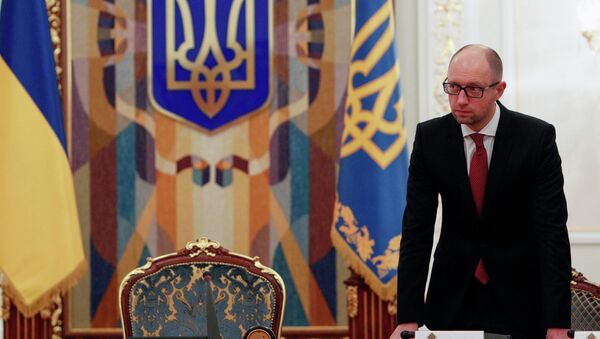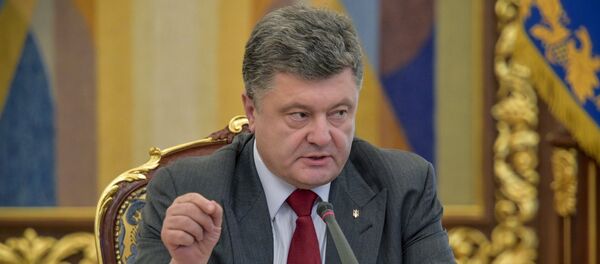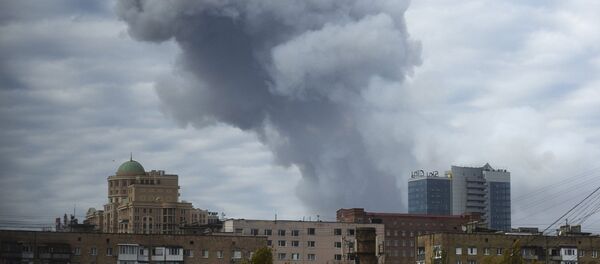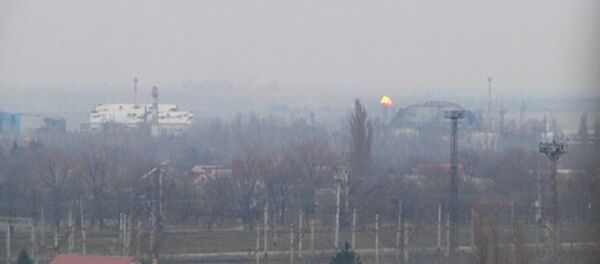In late October, Ukraine, Russia and the EU coordinated all the details of an interim agreement on Russian gas deliveries to Ukraine through March 2015, and signed a deal outlining the conditions for gas deliveries during the winter months. Gas prices for Ukraine in the first quarter of 2015 were set at $365. The current gas deal between Moscow and Kiev ties the price for Russian gas to international oil prices.
“In the first quarter of the next year it will be at $350, not even at $365, as the market is falling and oil prices are falling,” Yatsenyuk told the cabinet of ministers.
In September, Russia and the European Commission proposed the so-called winter package, according to which Ukraine should pay $3.1 billion of its debt to Russia by the end of the year in exchange for gas deliveries during the winter period.
Ukraine to Increase Reverse Gas Deliveries, Create Additional Diversification
“We will increase the volumes of reverse gas deliveries and will create additional gas pipelines to diversify deliveries of gas to Ukraine,” Yatsenyuk said, adding that due to cold weather, the volume of gas stored underground fell from 17,000 to 15,000 billion cubic meters.
Ukraine currently receives gas only through reverse flows from a number of European countries, as Russia has switched Ukraine to gas prepayment system in June over its massive debt. Russian energy giant Gazprom says that reverse flows violate gas transit contracts.
Earlier in November, Ukrainian President Petro Poroshenko proposed to his Slovak counterpart Andrej Kiska to create a gas transit hub together with Poland and Hungary in order to ensure the reliability of the reverse gas supplies.
In October, the final round of gas talks between Russia and Ukraine, brokered by the European Union, finished with the signing of a "winter package" agreement, securing Russian gas supplies to Ukraine until March 2015. Earlier in November, Ukrainian Energy Minister Yuriy Prodan said that Ukraine was planning to buy about 1.5 billion cubic meters of gas from Russia by the end of 2014 and that its delivery is likely to start early in December.
Minsk Protocol May Still Bring Peace to Ukraine
“Russia has not taken any steps to de-escalate the conflict [in eastern Ukraine]. Russia doesn’t want peace. If Russia wanted peace, then the Minsk Protocol wouldn’t just be on paper it would be in action,” he said.
“The Minsk Protocol may still bring peace to Ukraine,” Yatsenyuk added.
After a new government came to power in the country as a result of the February coup, residents of some Ukrainian regions refused to recognize its legitimacy. In April, residents of Donetsk and Luhansk in eastern Ukraine established people's republics in a move that triggered an armed conflict with Kiev launching a military operation to suppress the independence movement in the regions.
A memorandum specifying the implementation of the ceasefire was adopted at another Contact Group meeting on September 19. However, the situation in Ukraine's eastern regions remains tense and both sides routinely accuse each other of violating the truce.
Kiev has repeatedly stated that Russia is to blame for escalating the tensions in the volatile East even though Moscow has denied any such claims.





